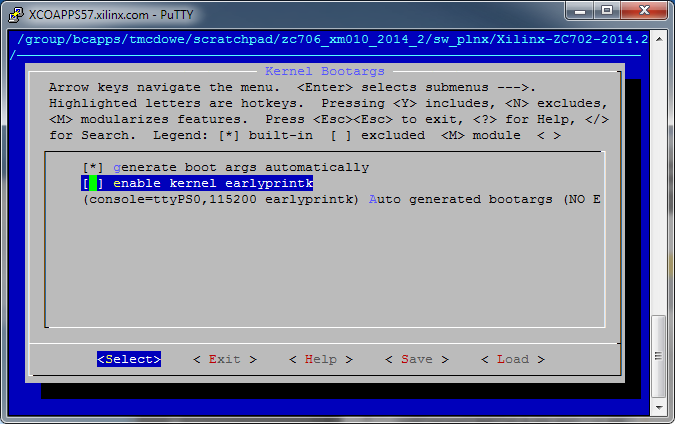
A breakdown of the bootscript to show different options.

#U boot bootargs serial
Linux PC, Parallella board(s), USB to Serial (TTL/UART) adapter, DHCP server. Tweak the example below to suit your needs. The many advantages include saving space on the server, and mainly(!) not having to replicate SD cards for each cluster member.Ĭloning and modifying the NFS directories for use by other Parallellas is also easier and quicker: just copy directories on the NFS Server (and perhaps edit a couple of files). Shared root filesystems: A root filesystem directory on the NFS server may also be shared by a number of Parallellas, say, in a cluster. Ubuntu, Linaro Nano, with/without SDK) are just like 'burning' and booting from multiple SD cards.
#U boot bootargs how to
The following is based on the original blog post by Scott Johnson describing how to set up a Parallella cluster to use TFTP/NFS, but has been tweaked - mainly to minimise the need to edit/update the U-Boot variables via the Serial/UART cable, and provide more flexibility by using PC-based editors and storage.īy editing a bootscript on the TFTP server (and re-booting), a Parallella can be re-configured to a different boot mode (headless,HDMI) and/or different root filesystem (Ubuntu, Debian, nano) - all without having to 'burn' another Parallella SD card (perhaps ever.?).Īlternative root filesystems: A Parallella may have alternative Linux root filesystems, holding different configurations or versions. This Guide describes how to set up the Parallella U-Boot to network boot using TFTP.Īlso, it describes how to set up mounting a root filesystem ( rootfs) via NFS, so that a Parallella is run as a 'Thick Client'.įor background to the TFTP Boot in U-Boot, see the Manual for Das U-Boot How To Set Up TFTP Boot And NFS Root Filesystems On Parallella


 0 kommentar(er)
0 kommentar(er)
